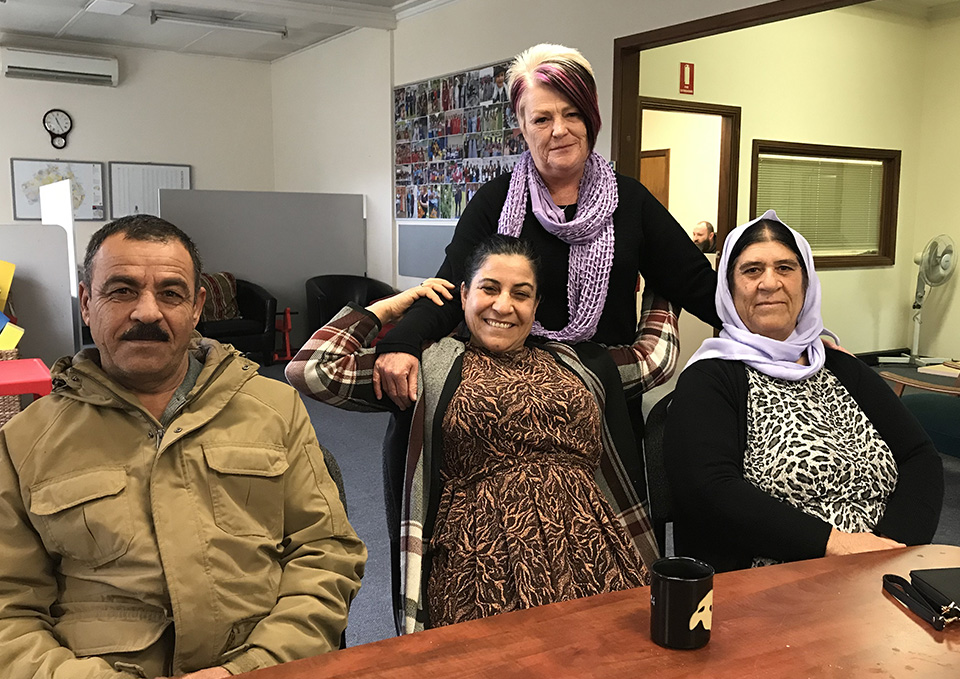Healthcare teams need to create an environment that fosters trust; where clients feel safe and they are viewed as individuals.
Everyone has a responsibility to support refugees, not just the designated services.
Practical considerations
It is useful to have a checklist of processes to ensure newly arrived people feel safe accessing the relevant information and health services to support their settlement. Providing too much information can be overwhelming. It is important to:
- listen
- provide relevant information about the experiences of being from a refugee background
- talk about expectations of healthcare.

| What you can do | How it will help |
|---|---|
Host a health information session with an interpreter and bicultural workers. Provide multi-lingual resources, if appropriate. |
|
Provide technology and explain digital appointments. Provide letters and digital reminders. |
|
| Hospital orientation |
|
Liaise with non-government agencies to run activities targeted to different community groups, such as parenting, art therapy or mums and bubs sessions |
|
|
Partner with the refugee community to run health events. Consider hosting barbeques and picnics to engage the community outside the hospital or healthcare setting in a relaxed friendly environment. |
|
|
Engage with general practitioners (GPs). Provide an opportunity for LHDs to work with their primary health network to ensure they navigate culturally specific care for people from a refugee background. |
|
| Ensure staff have access to relevant cultural resources and training |
|
|
Consider having co-located services. Ensure refugee health teams have access to other services nearby, such as settlement services. |
|
It is important to understand and know your community - their demographics, age, country of origin, and considerations around age, access to technology, dialects and cultural conflicts.
Building a relationship
While healthcare teams need to learn about the cultural needs of their newly-arrived community, it's important to recognise that each individual has unique health needs.
If a refugee has experienced traumatic events or been persecuted, they may feel anxious about using state and government services. Refugee health and support services need to enable people to feel safe and welcome.
Emma and Karinne used to visit us at our house and give us vaccines. They were friendly and nice people. When we told them our story, they began to cry. We don't look at them like medical staff. They made us feel comfortable. They felt like they were our friends.
Resources
Cultural Atlas – information on the cultural background of Australia’s migrant populations.
Source: SBS, International Education Services (IES), and Multicultural NSW
Refugees, Asylum Seekers and Trauma – resources and training videos covering the impact of trauma on refugees and asylum seekers.
Source: NSW Service for the Treatment and Rehabilitation of Torture and Trauma Survivors (STARTTS)